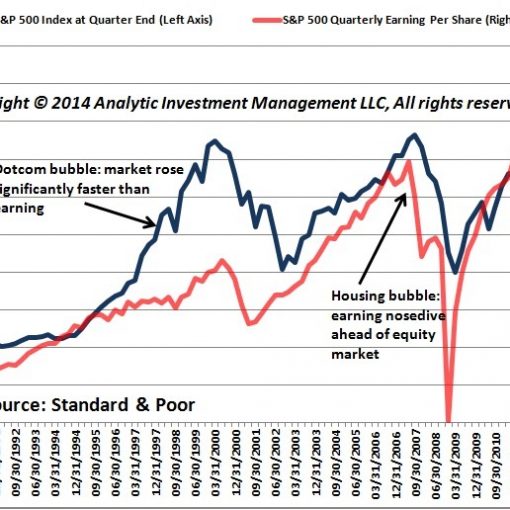Author: Libardo Lambrano
Covestor model: Dividend Paying Large Caps
Historically, technology has outperformed other sectors on the stock market, but that has not been the case lately. All time winners have been lagging behind the rest of the market and flagship stocks such as Microsoft (MSFT) or Dell (DELL) have going sideways or declining over the past ten years.
As I’m sure you’ve noticed, technology stocks such as Hewlett Packard (HPQ), Research in Motion (RIM), and Nokia (NOK) have been crushed lately. PE ratios of technology stocks are generally fairly low as compared with historical standards.
The PE ratio of MSFT is 15.43 as of August 31 as compared with its 10-year PE average of 19.95. A similar issue is happening with Dell, whose current PE ratio is 6.29 as of the end of last month as compared with its PE over ten years of of 8.48. This phenomenon seems to be a pattern in the industry, and sadly only a few technology stocks–like Apple (AAPL)–have escaped the trend.
Many investors today still seem to be scarred by the carnage that occurred during the bursting of the internet bubble in the early 2000s. However, the technology sector today appears to be a much different environment than that of the bubble era. The sector is now dominated by companies that actually produce products and services rather than simply relying on “growing numbers.”
Google (GOOG) topped the $700 mark for the first time since 2007 when shares hit a new 52-week high of $712.25 on Friday September 7th. That’s less than 5% below its all-time high of a little more than $747. The stock may have lagged in the broader tech market during the past five years, but it seems to be hitting a growth spurt. In the past month alone, shares have spiked 11%. Google is one of the companies I have my eye on and am considering investing in later this year.
Despite the underperformance of the sector over the past few years, I believe we are nearing the point where the sector will rise again as it did in the late nineties. To be clear, I’m not talking about Facebook (FB), whose IPO I recommended not to buy, Zynga (ZNGA), Pandora (P), Groupon (GRPN), or any of the other trendy social networking based companies that are just that: fashionable stocks which are easily replaced as soon as a new idea comes around.
These types of companies have no barriers for entry. Just look at Pandora, as soon as it went public several competitors started to pop up with even better services – e.g. Rdio, Spotify and even Apple who recently announced a similar competitive service. When the Wall Street Journal reported that Apple was seeking to launch a Pandora-like serve, stock of the Internet radio service fell 17%.
When I say technology will shine again, I’m talking about serious companies with a strong infrastructure, solid products and an above average market share. These include Microsoft, Dell, Oracle (ORCL), Hewlett Packard, Intel (INTC), Qualcomm (QCOM), and IBM.
While most of these companies have struggled over the past several years after being affected by the recession that hit both consumers and corporate segments hard, I believe this scenario will change very soon with the introduction and massive adoption of new technologies and platforms.
In the mobile arena, Near Field Communication (NFC) will become a major player, so far only Google has pushed this initiative, but as soon as Apple and other mobile providers follow suit, the adoption of this technology will move to a different level. I expect the new iPhone 5 launch (coming later this fall) to include this technology.
Companies will be forced to upgrade their hardware and software in the near future with the introduction of Windows 8, which will make most of the corporate suites obsolete and incompatible with other systems. Windows 8 will introduce a new paradigm, and there is no way companies will be able to continue to use old products such as Windows XP and remain competitive. As companies around the world begin to upgrade their systems and solutions, technology stocks will flourish as they did years ago.
I have been waiting for months to get a position in Microsoft at a $24/$25 level, but it seems that the new floor for the share price is $30, so I may have to give up on my hope for a lower share price and get a position in the next quarter.
I am also planning to increase my holdings in Dell, which has a very attractive current price, despite the fact that they will begin paying dividends and that they have made more than 10 large acquisitions over the past few years to strengthen the company’s position with corporations and IT services.
Other stocks that I plan to hold for the long run and likely increase my position in Q4 2012 are Qualcomm, Intel and IBM.
Any investments discussed in this presentation are for illustrative purposes only and there is no assurance that the adviser will make any investments with the same or similar characteristics as any investments presented. The investments are presented for discussion purposes only and are not a reliable indicator of the performance or investment profile of any composite or client account. Further, the reader should not assume that any investments identified were or will be profitable or that any investment recommendations or that investment decisions we make in the future will be profitable.”
Certain of the information contained in this presentation is based upon forward-looking statements, information and opinions, including descriptions of anticipated market changes and expectations of future activity. Covestor believes that such statements, information, and opinions are based upon reasonable estimates and assumptions. However, forward-looking statements, information and opinions are inherently uncertain and actual events or results may differ materially from those reflected in the forward-looking statements. Therefore, undue reliance should not be placed on such forward-looking statements, information and opinions.



